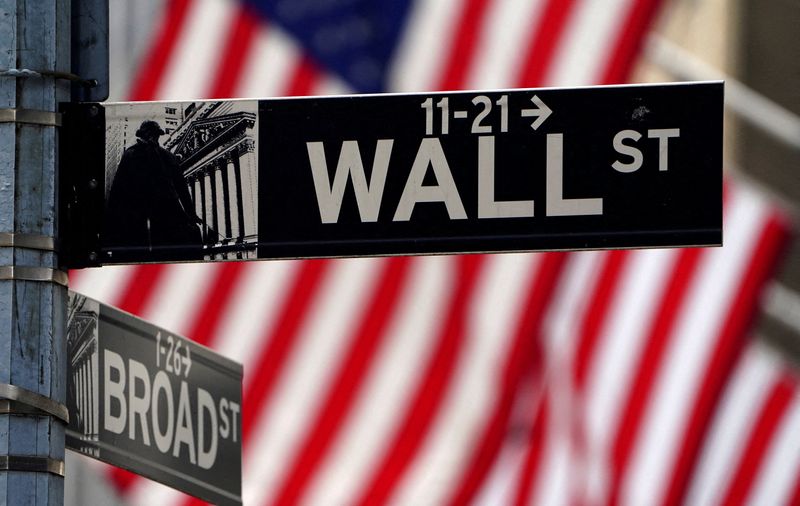(Reuters) -It's a big week for central banks, with policymakers in the United States, Japan and Britain all due to reconsider lending rates and markets on edge over more earnings from U.S. tech giants.
In Venezuela, voters head to the polls to elect a president.
Here's your look at what's happening in markets in the coming week, from Kevin Buckland in Tokyo, Ira Iosebashvili and Rodrigo Campos in New York and Amanda Cooper in London.
1/SEPTEMBER QUESTION
The steep selloff in markets in recent days is shining a spotlight on the Federal Reserve, which concludes its July monetary policy meeting on Wednesday.
Signs of economic concern from the Fed could give investors - already unnerved by turbulence in U.S. tech stocks - yet another reason to worry. As it is, investors believe the time to ease monetary policy is swiftly approaching: futures tied to the Fed funds rate show investors pricing in a more than 90% chance of a September rate cut amid evidence of cooling inflation and a nascent downshift in the jobs market.
U.S. employment data due Aug. 2 will give investors the opportunity to assess whether the gradual signs of slowing that bolstered rate cut expectations have continued in July. Economists polled by Reuters expect the U.S. to have created 185,000 jobs in July, compared with 206,000 in the prior month.
2/TECH TANTRUMS
Spooked investors also face a minefield of Big Tech earnings, with misses threatening to further upend a market roiled by worries over stretched stock valuations.
Microsoft (NASDAQ:MSFT) is scheduled to report earnings on Tuesday, followed by Facebook-parent Meta (NASDAQ:META) on Wednesday and Apple (NASDAQ:AAPL) and Amazon (NASDAQ:AMZN) on Thursday. Disappointing numbers could re-ignite the worries that caused a crushing selloff in U.S. stocks on Wednesday, when both the S&P 500 and Nasdaq suffered their worst day since late 2022.
The huge run-up in tech stocks may have set a high bar for their results. Google-parent Alphabet (NASDAQ:GOOGL), whose earnings were one of the triggers for the recent selloff, actually reported better-than-expected revenue, but investors grew wary that rising spending on AI infrastructure could squeeze margins, sending the shares 5% lower.
3/HIKES AND SPIKES
Speculation is growing that the Bank of Japan could hike rates on Wednesday after high-profile politicians - including the prime minister - hinted at the need for near-term policy normalisation.
It's not the need to end decades of extraordinary stimulus, per se, that is at the heart of their arguments. Rather, the weak yen's choking effect on households and businesses that looks to be turning the exchange rate into a central issue for the ruling Liberal Democratic Party's leadership convention in September.
The fact that the currency has rebounded by a staggering 10 yen per dollar from three-decade lows at the start of the month hasn't deterred some from predicting a July hike. They argue the BOJ can get the most bang for its buck by hiking into a rallying yen. Others worry a fragile economy and weak consumer sentiment couldn't weather higher borrowing costs, with slowing U.S. growth set to have a knock-on effect already.
4/STICKY ISSUES The Bank of England meets on Thursday and right now, markets see a roughly 48% chance that rates will fall for the first time since March 2020. Growth is modest and consumer inflation has returned to 2%. Yet wage growth and service-sector inflation are proving sticky and running hotter than a number of policy-setters at the Old Lady of Threadneedle Street, as the Bank of England is known, would like. Clare Lombardelli, the new deputy governor, may hold the deciding vote, as the other eight Monetary Policy Committee members are split evenly on whether to hold or cut. British consumers might be feeling the pinch of interest rates at more than 14-year highs, but banks have certainly reaped the benefits. Markets will watch results from HSBC, Barclays (LON:BARC) and Standard Chartered (LON:STAN) to get a sense of how well they are likely to fare when borrowing costs, and the profit they make on them, start to fall.
5/A MULTI-BILLION QUESTIONVenezuelans will elect a president on Sunday. Opposition candidate Edmundo Gonzalez has gathered significant support against incumbent Nicolas Maduro, who has pledged the election will be transparent. The winner of the opposition primary, Maria Corina Machado, was forced out of the race.

Venezuela had suffered six-digit hyperinflation for about four years, with the indicator reaching a heady 130,000%, eroding savings and making basic supplies scarce. But annual inflation fell to around 50% over the last year as the government restricted credit, held the exchange rate steady and curbed public spending.
The results and handling of the vote are one half of the puzzle determining future U.S. sanctions on Venezuela - the battle for the White House is, of course, yet to come in November. Current curbs include a ban on buying bonds directly from Venezuela's government. That precludes, for now, a restructuring of some $60 billion in international bonds owed by the government and state-owned oil firm PDVSA. Venezuela's and PDVSA'S defaulted bonds trade at deeply distressed levels of 13-22 cents, but have rallied sharply from late last year's single-digits. Investors are watching Maduro's handling of the election very closely.